 After being framed for crimes which they didn't commit by their own country, the G.I Joe fighting unit is terminated by direct orders from the president. In an aftermath with few survivors, three "Joes" much seek out the truth behind their ordered termination. Jon M. Chu's G.I. Joe Retaliation is pretty much what you expect, being big, loud, and extremely dumb. The opening few minutes give the viewer a good idea what they are in for, with an action set piece followed by an absolutely absurd amount of exposition explaining all the potential bad guys as well as any back-story it deems necessary. One thing that struck me right off the bat about this film is just has fast paced it all is. The film really does fly by at a breakneck speed, going from action scene to exposition in a way that keeps the film highly entertaining if you dig this type of absurdity. One particular scene taking place at a nuclear summit had me laughing so hard that I couldn't determine if the film was self aware or just that stupid. The action scenes are plentiful and while most of them are nothing special, there are a few cgi-porn scenes that are fun. If you go into G.I Joe expecting a somewhat intelligent action film you are sure to be let down but for those who want to turn their brain off, I can't say this isnt fun. 6.5/10
0 Comments
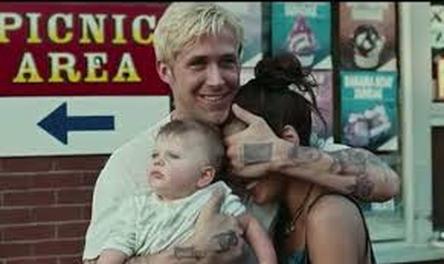 Derek Cianfrance's The Place Beyond The Pines is the highly anticipated follow-up to Blue Valentine which explores the actions and consequences which can shape generations. Luke is a stunt cycle rider who lives on the edge of society with not much to his name. When he discovers his lover recently gave birth to his son, he begins to provide for his family by any means necessary, using his motorcycle skills to rob banks. The more Luke feels that he is losing his family to another more responsible man, the more out of control he becomes, leading him on a collision course with Avery, a ambitious rookie cop, which will shape not only their lives, but the lives of their sons. The Place Beyond the Pines is a film with epic dramatic ideas written all over it, yet it unfortunately buckles under the weight of its own intentions. The narrative takes place in two parts, following Luke and his struggles but then fast forwarding fifteen years to observe the consequences of everything on Avery, and both of their now teenage sons. The first half of the film is by far the most interesting segment, with Luke's brutish character being particularly compelling. Luke is a man with such an unstable, seething rage, and I found the juxtaposition of this man's rage with his love to be one of the most interesting segments of the film. Besides Luke's character, the film ultimately lacks energy and any genuine form of spontaneity in its characters and decisions. The film really struggles to mature its themes in the context of the characters, almost exclusively relying on the narrative to provide too much. There really wasn't much of a connection from a thematic standpoint, at least not one that isn't vapid. I am a major fan of Blue Valentine but with The Place Beyond the Pines, Derek Cianfrance seems to have forgot what made that film so strong - character. It's almost as if Cianfrance got so wrapped up in telling this epic narrative that he forgot to make the characters deep and interesting. Much of the characters decisions don't feel genuine or real but simply a bi-product of the films narrative and while the film's ending is a poetic conclusion,, the parts of the film just don't equal the sum. Derek Cianfrance's The Place Beyond The Pines starts off strong but ultimately fails to deliver on its lofty expectations with the film getting less interesting with each passing moment. 5.5/10 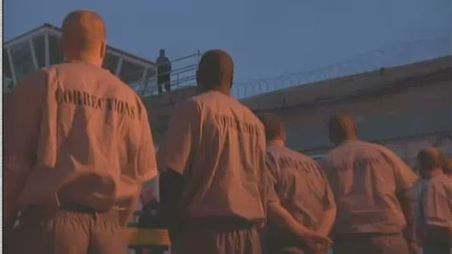 Eugene Jerecki, the filmmaker behind Why We Fight, turns his camera away from the military industrial complex and onto the misguided disaster known as the War on Drugs. Why We Fight is a combination of stock footage and talking heads, looking at all sides of the drug trade from law enforcement to users and dealers as well as politicians. On the grand scale of its narrative, The House I Live in doesn't spend much time profiling individual stories. Don't get me wrong it has some of that but the primary narrative is simply about the drug war in America touching on everything from the implications with capitalism to how race is one of the primary drivers of the "War on Drugs". The film shows the tragedy of addicts being treated as criminals and just how short-sighted and politically motivated the harsh laws on drugs are. While I was familiar with much of the films commentary, the discussion about how police officers have become feared in society was a fascinating argument. I must admit, I was not aware going into the film that David Simon was one of the contributors. This made me quite happy, considering how well versed he is on the subject matter. Perhaps in the end, David Simon sums up the war on drugs best, pointing out that it is a class-based issue. The House I Live in is a well put together examination of the drug trade that is certain be an eye opening experience to many and be seen by all. 8/10 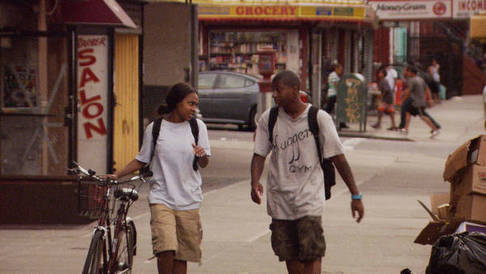 Malcolm and Sofia, two teenagers living in the Bronx, spend most of their time as graffiti artists. Feeling heat from a rival gang of street artists, the two hatch a plan to get revenge by tagging an iconic NYC landmark, giving them ultimate street cred. In need of $500 dollars to pull of their scheme, the two set out to track down the money on the streets of New York. Adam Leon's Gimme the Loot is a simple, yet effective film that is far more appealing and exuberant than it has any right too be. The primary reason for this lies in the interaction between Malcolm and Sofia. The relationship between the two of them is a pleasure to watch, with banter and interaction that just comes off as incredibly genuine. The film does flirt with these two characters being more than friends but wisely leaves it at that, similar to a teenager who is confused about their feelings. In terms of their relationships importance to the film, I would even go as far as to say that the film somewhat lags when they aren't on the screen together. Another strong attribute of the film is its ability to capture the world which these two teenagers navigate. The film never spends too much time trying to over dramatize things for the viewers sake, accepting that to these characters much of what goes on to them is natural, merely another day in the life. Tonially, Gimme the loot is much more laid back and comical than I was expecting but it was the right decision given that what transpires is nothing too out of the ordinary for Malcolm and Sofia. Gimme the Loot is not groundbreaking or heart-wrenching but it's effective storytelling, giving us a honest and endearing portrait of taggers living in the big apple. 7.75/10 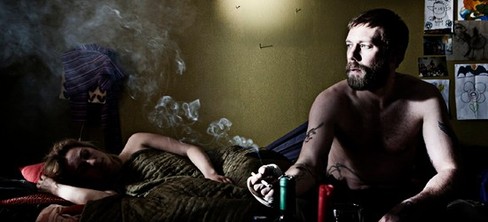 Nick and his little brother live with their mother, a horrible drunk who spends more time with the bottle than her own sons. Because of this fact, Nick and his other brother are tasked with taking care of their baby brother even though they obviously aren't knowledgeable on the matter. This leads to tragedy, with both brothers blaming themselves for their baby brothers death. Many years later, Nick and his younger brother, who remains nameless, remain haunted by the events of their childhood. Thomas Vinterberg's Submarino is a bleak character study that provides little hope in its depiction of two men whose lives have been shattered forever due to a tragedy from their past. Being told through a non-linear narrative, Submarino follows these two brothers capturing the sadness and despair which consumes their lives. Nick spends his life drinking and chain smoking with nothing really to live for. His brother on the other hand is a single father, raising a young boy, while also being a drug addict, whose addiction is out of control. Submarino is not the most pleasant of experiences but it is well crafted, with well done cinematography and framing which certainly elevate the character study. The film's color palette is this hazy, almost sickly green, which just seems to perfectly fit the story. With Submarino, Vinterberg seems to be intent on capturing the importance of good parenting and/or environment. While this certainly shines through, Vinterberg goes one step further, suggesting that life is full of tragedy in which these men could have overcome if not simply for some type of support. Nick having his unborn son aborted against his personal wishes and the other brother losing his wife in a car accident, have both been through a lot but it's how they responded is telling. While these are horrific incidents in their own right, these men's inability to fight through adversity stems back to their childhood and lack someone they could confide in. This lack of never having someone like this in their lives leads both men to lack fight and simply give up on life when it gets tough. Thomas Vinterberg's Submarino is certainly not a film for everyone but it's a well crafted film from acting to direction that offers a slight shimmer of hope at the very end. 8/10 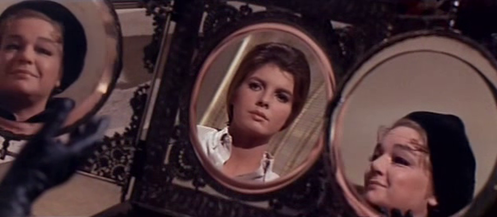 Paul and Jennifer are a pair of wealthy socialites who are bored with the same old games. In an effort to make their lives more interesting they routinely perform kinky mind games on unsuspecting people. When Lisa, a mysterious older saleswoman, arrives in their home, they quickly take a liking to the woman that leads to their seemingly harmless games turning deadly. Curtis Harrington's Games draws heavily from Les Diaboliques, yet separates itself enough to deliver an effective, mysterious and engaging thriller. Early on in Games, Harrington does a great job at creating an atmosphere soaked in mystery and suspense. With well-timed sound effects (lighting crashing in the distance) and great use of voyeuristic shots, Harrington hints early on that something is amidst among Paul, Jennifer and their new guest, Lisa. Come to think of it, Harrington's direction is really a major reason the film works as well as it does, using great transition shots which not only provide smooth transitions but effectively capture mood and character motivations. These three characters primary intentions are to play games on each other, sometimes going as far as to stage spousal abuse or adultery to get a rise out of each other. This trickery leaves the viewer guessing to the very end with Jill's old world beliefs such as physic abilities, further aiding in making the viewer truly believe almost anything is possible within the narrative. Games has a diabolically clever ending but with today's audiences being so savvy one could potentially see it coming but there is no denying the films effectiveness regardless. Curtis Harrington's Games is very ahead of its time, providing the viewer with a creepy and fun mystery/thriller that is likely to keep the viewer intrigued til the very end. 7.75/10 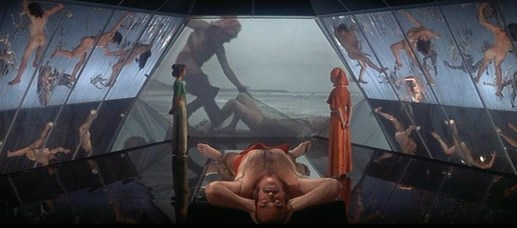 Set in the mid 23rd-century, Zardoz is a surrealistic allegory very much in tune with what was going on in 1970s America. Sean Connery plays Zed, a member of the Exterminators who are responsible for savagely murdering those deemed less fit. They answer only to their God, Zardoz, a gigantic flying stone head who orders them to carry out various demands. When doubt consumes Zed about Zardoz's divinity he discovers a group of immortals who simply wish to exploit the masses. I've always felt that John Boorman doesn't get enough credit as a director and Zardoz is another fine example. Being very much in tune with what would be deemed hippy culture of the 1970s, Zardoz touches on themes of sexual oppression, religion and conservationism in unique and crazy ways. For what Zardoz lacks in budget it makes up in ingenuity, creating a fascinating, trippy world. The film doesn't get enough credit for its inventive ideas, concepts or visual design, which uses simple household items like mirrors, bed sheets, strings of yarn, etc. to transport the viewer into this unique sci-fi experience. Zardoz is definitely loaded from a narrative standpoint but the John Boorman's and company's visual design make this film highly enjoyable from start to finish. I will say that the costume design was one of the weak links of the film, but it's hardly something that took me out of the experience. Zardoz is loaded with ideas to the point of convolution, but it's more intelligent than it gets credit for, creating a highly original sci-fi adventure. 8/10 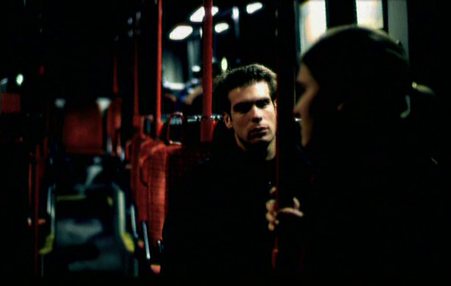 Places in Cities opens with a young man professing his love to a young girl. He knows that she is too young for him, and asks if he can call for her when she is older. She quietly says yes to this notion, with the scene coming to a close. Throughout this entire opening sequence this young woman's back is to the camera. On first glance the opening sequence feels wildly out of place, a typical ending more than a beginning, but as Angela Schanelec's Places in Cities moves forward, introducing Mimmi as the central character, the intentions of the film, while difficult, begin to come into focus. Places in Cities shows little interest in narrative structure, relying heavily on its artistic technique and the emotional ellipses of Mimmi to capture life itself. While watching the film I began to suspect this was another coming of age drama but the film demystifies every type of romanticism and tragedy of this young girl's plight, with Schanelec merely being an observant eye to the trials and tribulations of life. Don't get me wrong, we see the strife between Mimmi and her mother, and how Mimmi goes from city to city and boyfriend to boyfriend, with the film's cinematography brilliantly using framing and lighting to capture her isolation and perceived loneliness. We are shown the emptiness surrounding her life with some rather typical use of wide shots but it's the films lighting which really stood out for me. Shanelec uses darkness to such great effect, capturing how Mimmi is emotionally shut off from the world around her. Through all this though, one must look back to the beginning to understand Shanelec's intentions for she does not view the character of Mimmi as tragic. Through all of this muck, Mimmi does share moments of joy and it's this elliptical effect which captures life itself. Places in Cities certainly captures the aimless or perhaps anxiousness which comes from being young, but Schanelec doesn't appear interested in making conclusions, almost as if being intent on capturing life, in which no one knows the answers, yet one must keep pushing forward and dreaming, while never giving up. 8.75/10 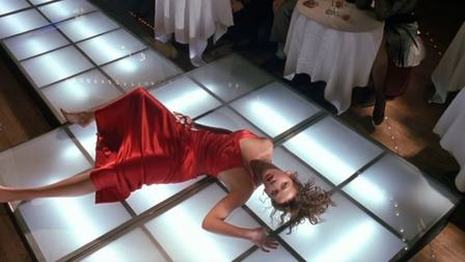 Given the Zulawski retrospective going on in Los Angeles, I have been revistiing many of Zulawksi's films, wanting to see if I hold the same opinions I once did. After re-watching 'My Nights are More Beautiful Than Your Days', I have decided that this could very well be my favorite of his films. Zulawski's french film on love is an emoting, frantic, wholly fascinating look into what the intricacies of love bring to any relationship. The first thing that stands out, which I never seemed to notice before, is just how little of his frantic cinematography actually exists in this film. Instead, Zulawksi has created a frantic, emotionally resonant film without the need, but it's definitely still crazy; just more so from a script standpoint. Many viewers could find the films style abrasive but if one is willing to get past that, this film completely captures all the doubts, pain, suffering, and compassion which come with love. Zulawski paints a picture where the lines between love and misery are blurred, as to show how they are not mutually exclusive. This being said, its not a pessimistic film by any means; it's just honest and as strange as it sounds, it's a very sweet film in sections. While it's definitely an abrupt style, I always find myself thinking "What If" after this film. As in, What if people wore their emotions and feelings on their sleeves like they do in this film... World would probably be a better place. 9.5/10 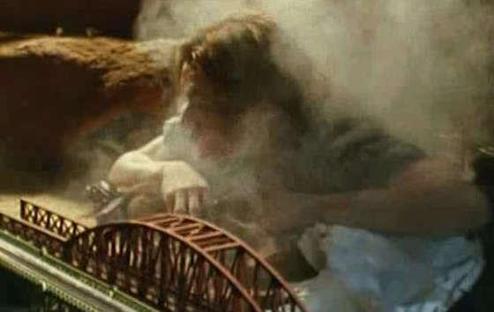 Track 29 is one of those films that's approach is semi-flawed but it's ideals are so interesting and fun that the faults slowly disappear from memory. Theresa Russell stars as Linda, the depressed wife of a doctor, who we come to learn is deeply emotionally damaged because of an event in her past. The film revolves around a relationship between Linda and Martin (Gary Oldman), a stranger, who claims to be her long lost son. What starts out as a story about a loveless marriage and hints of a sort of forbidden love, turns into a surreal trip about maternal obsession as Linda instantly finds a purpose again in Martin. Roeg never really states what is real or imaginary in this landscape early on, rather opting to let the viewer fall into this strange world. Gary Oldman is great as Martin, balancing this child-like exuberance with this mysterious, off-putting sense of potential danger. It's a loaded film which touches on Oedipal issues, insanity, maternity and depression. While it's not perfect by any means, its a wild, inventive film by Roeg, which never gets too overloaded in its themes thanks to it's oddness and relatively light tone. 8/10 |
AuthorLove of all things cinema brought me here. Archives
June 2023
|
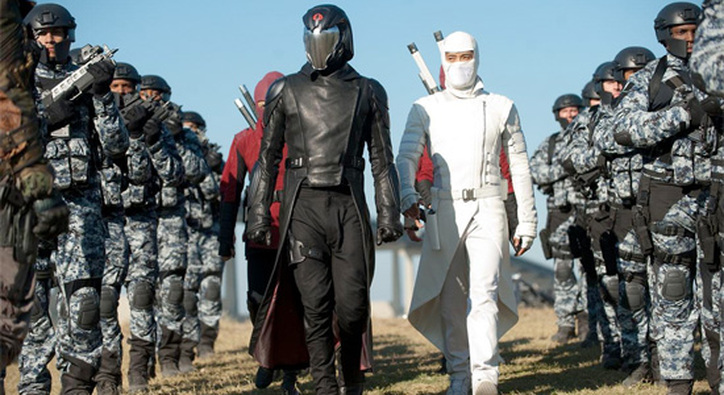
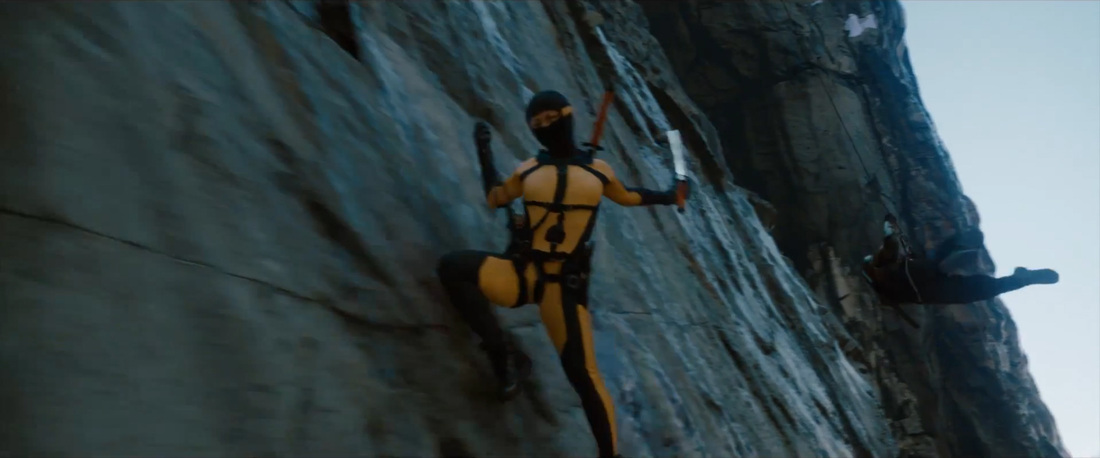
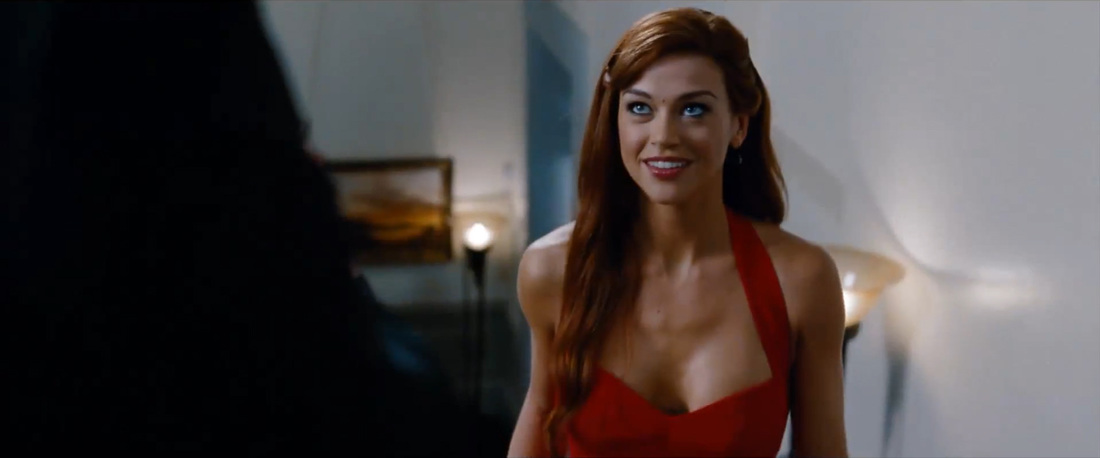
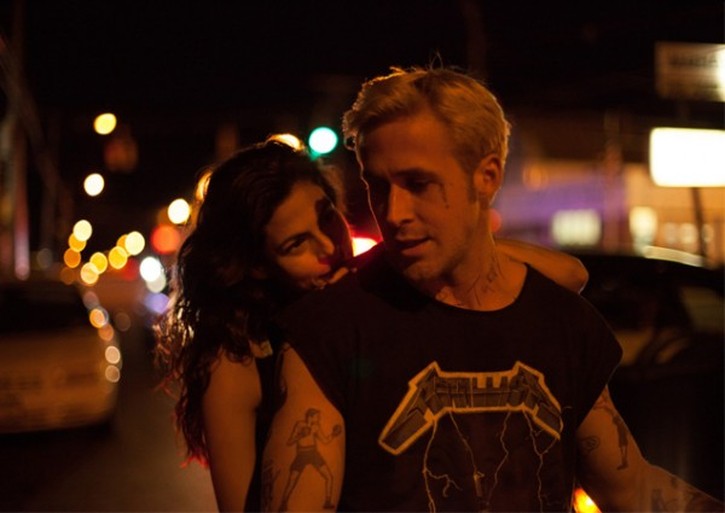
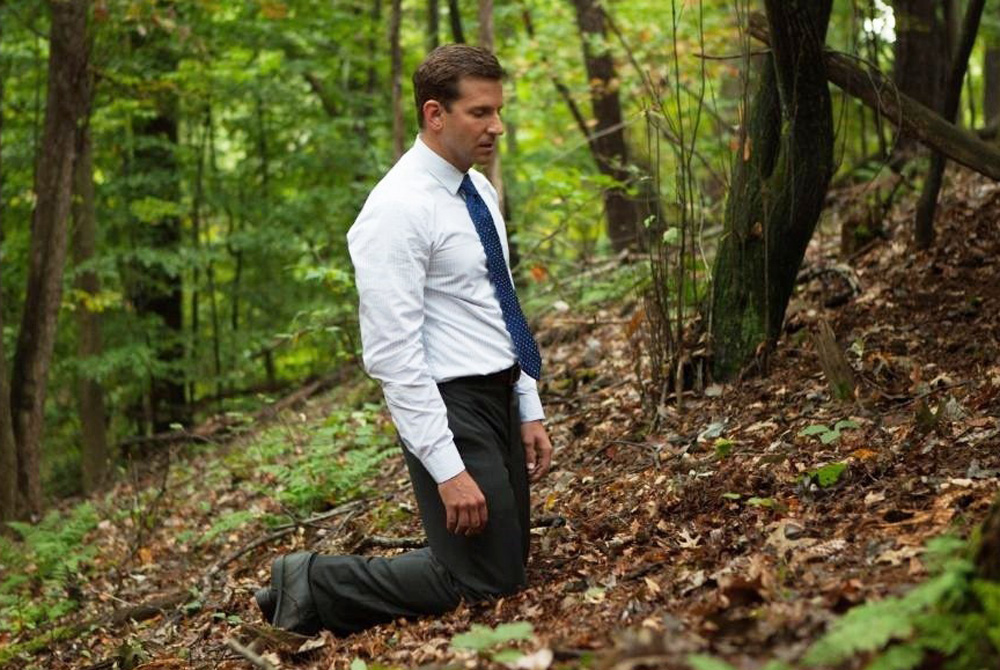
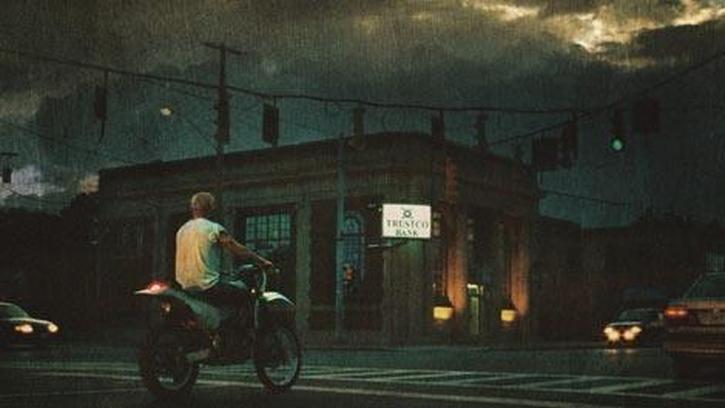

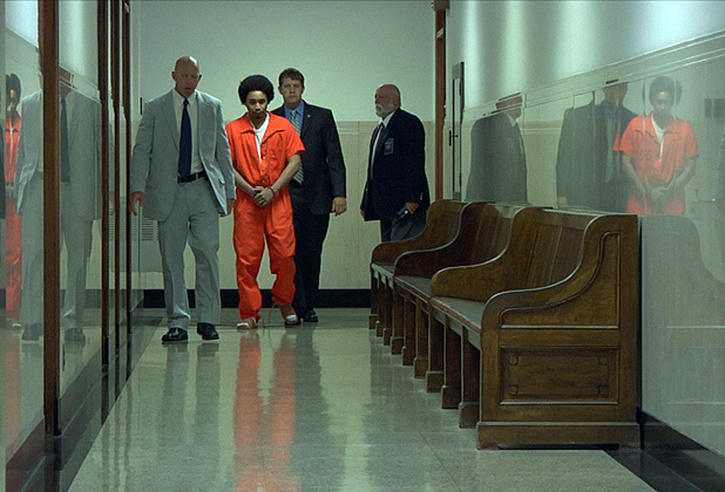
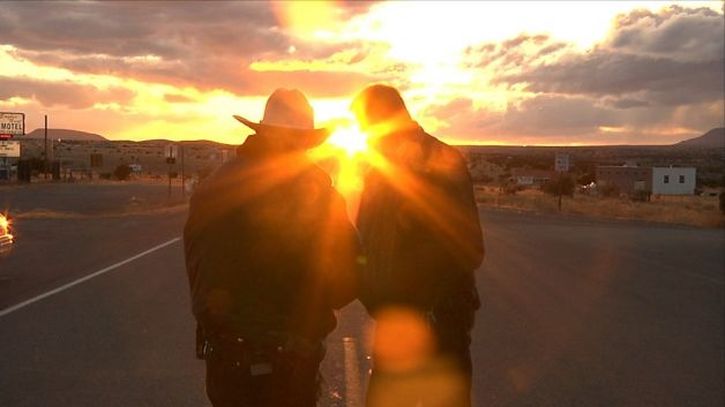
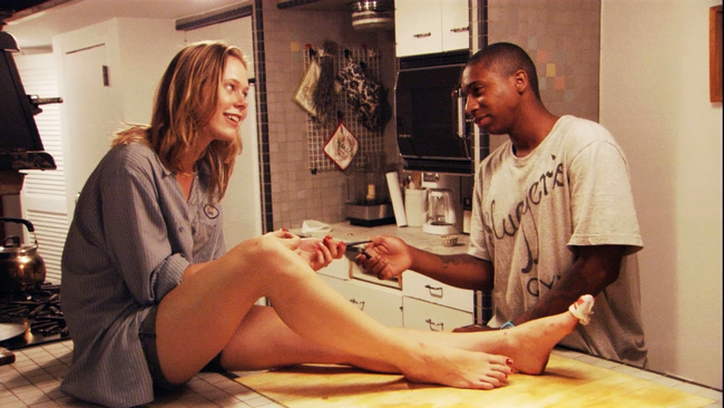

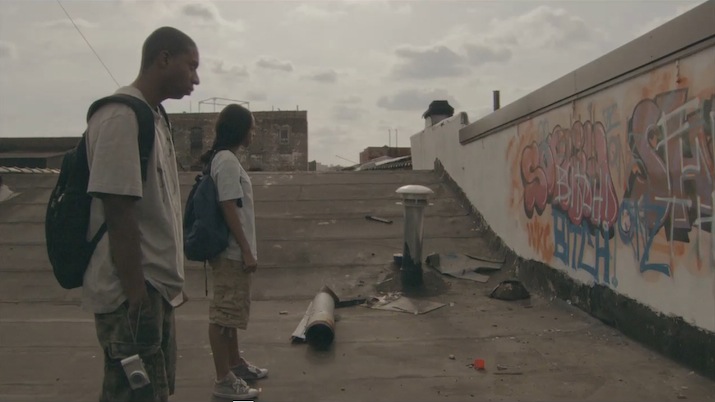
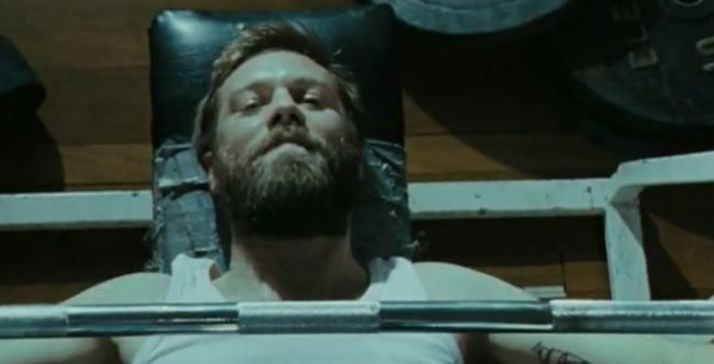
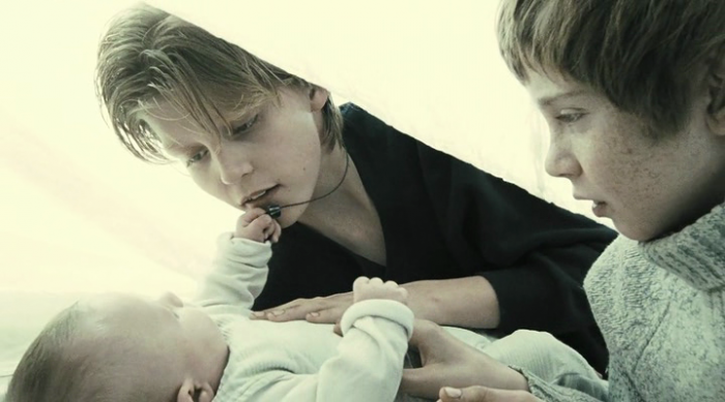
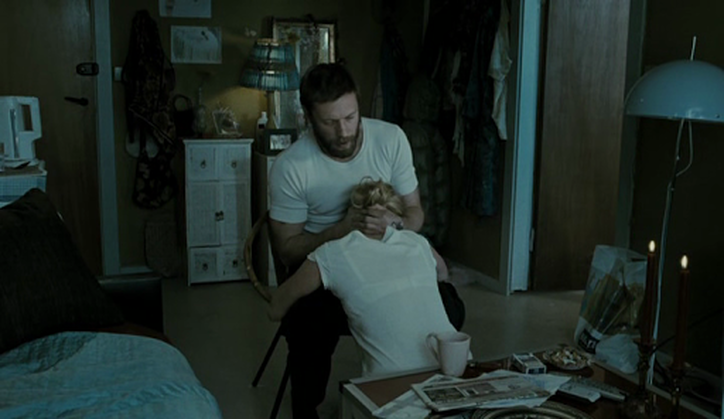
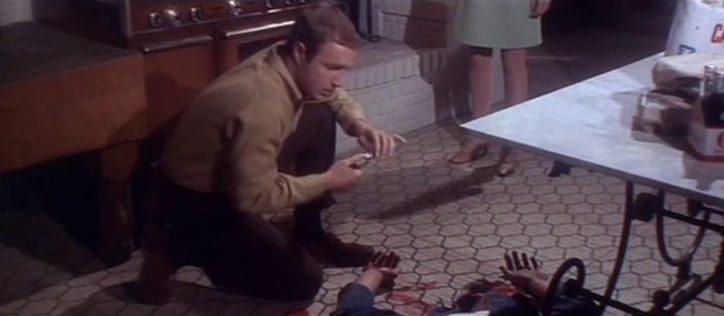
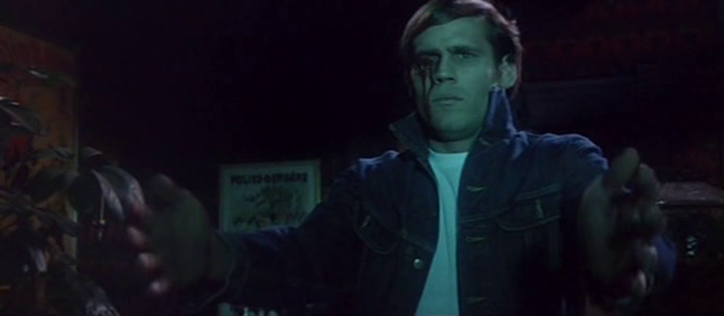
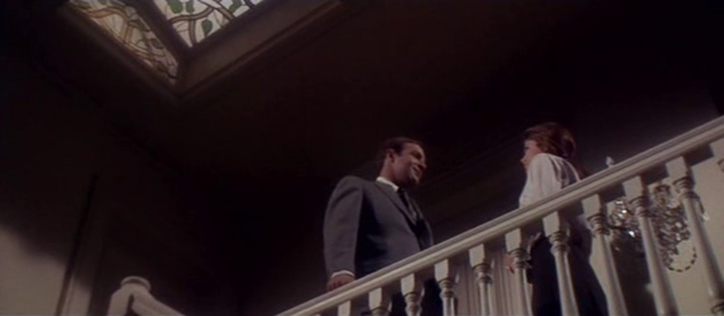
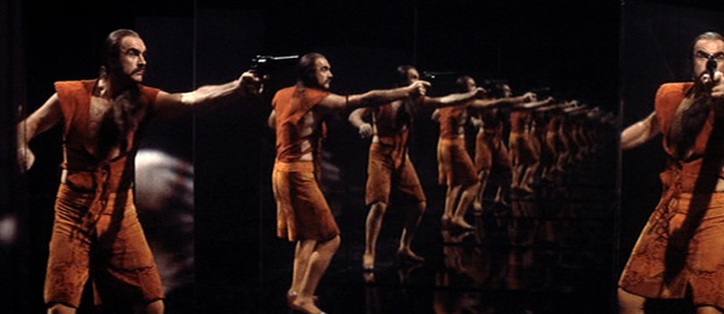
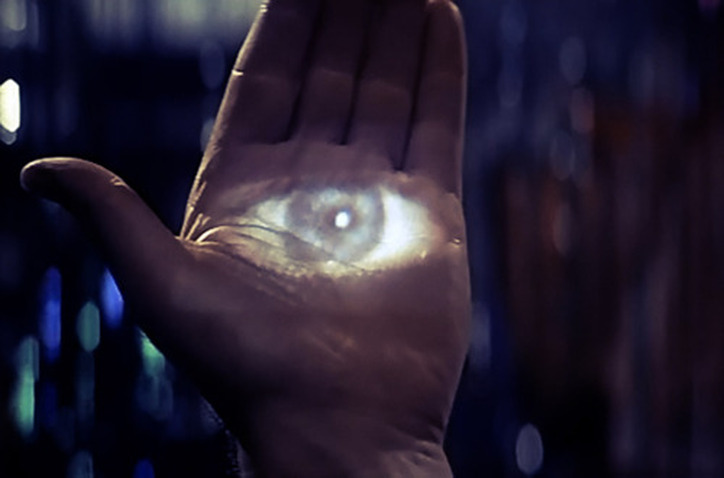
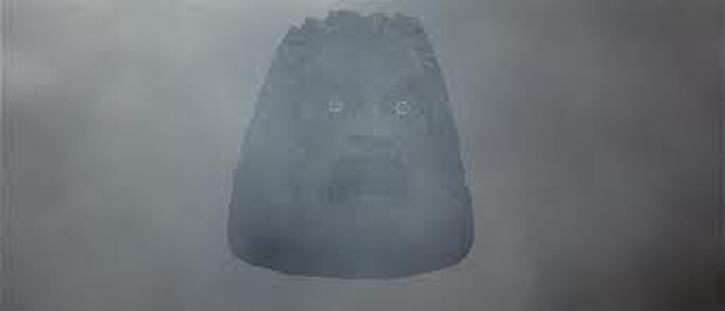
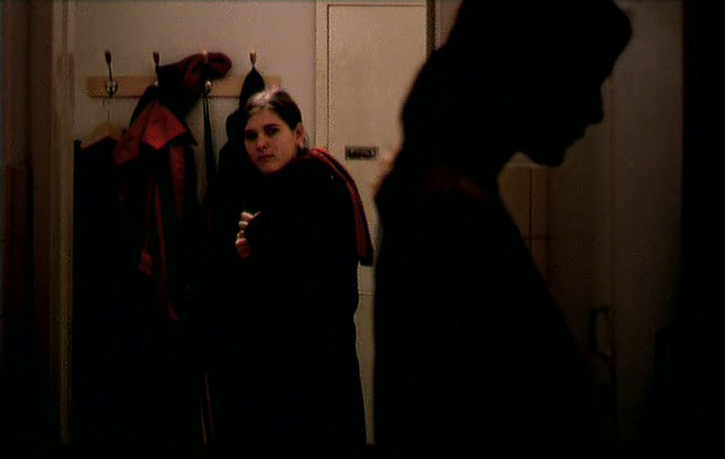
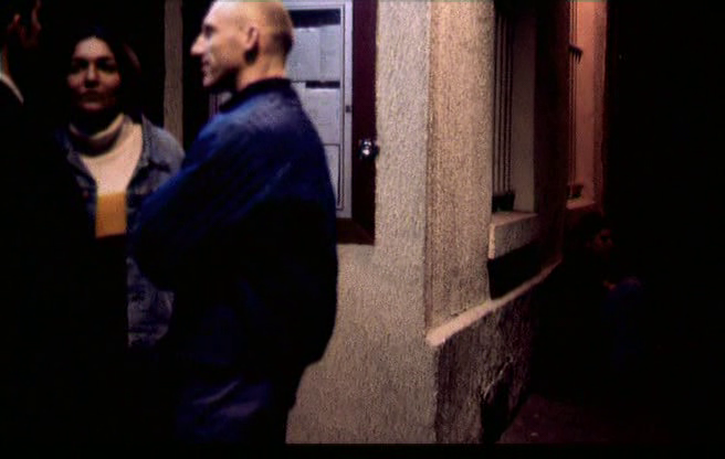
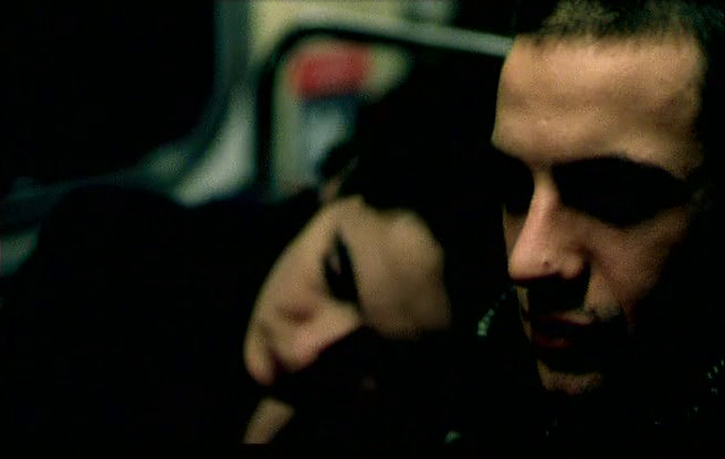
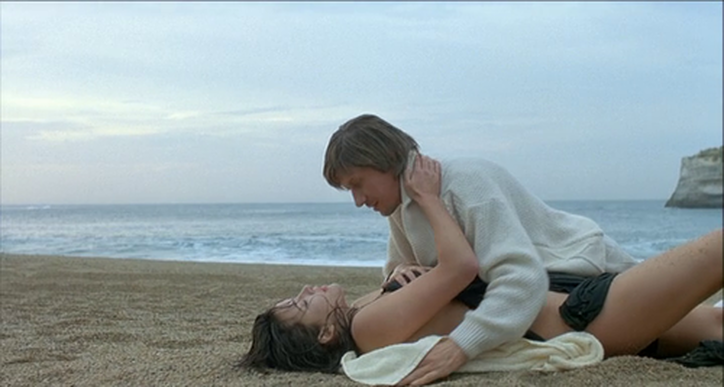
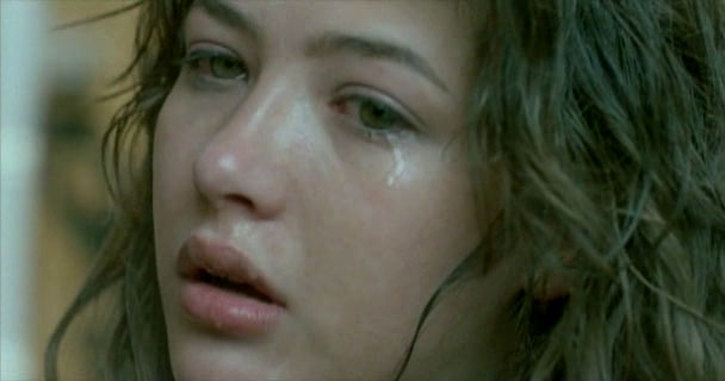
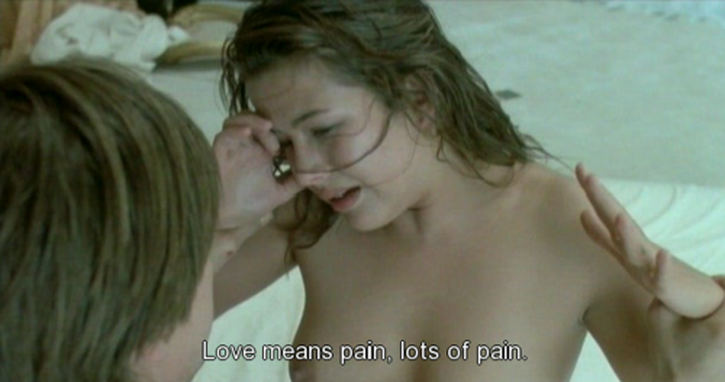
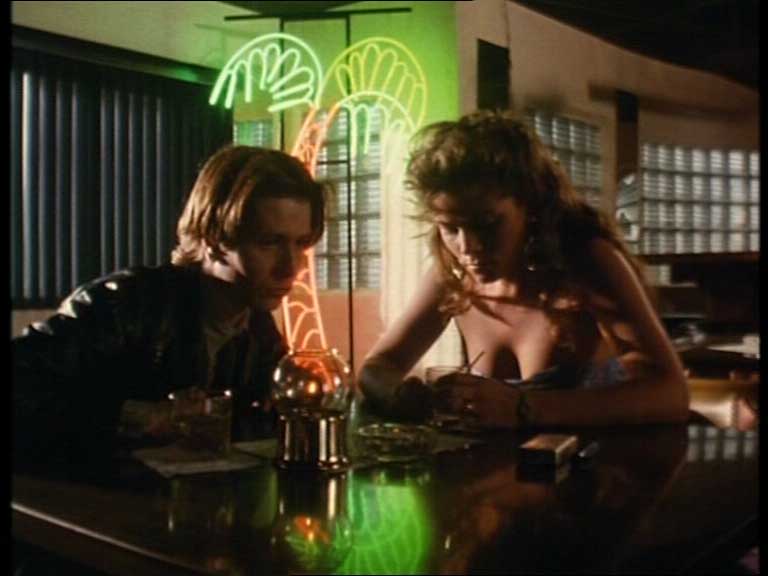
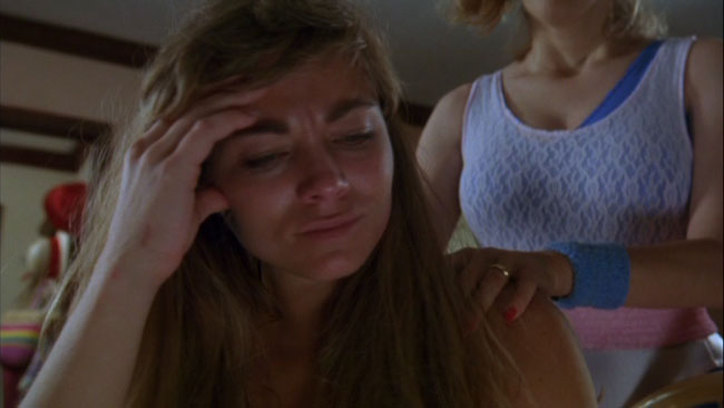
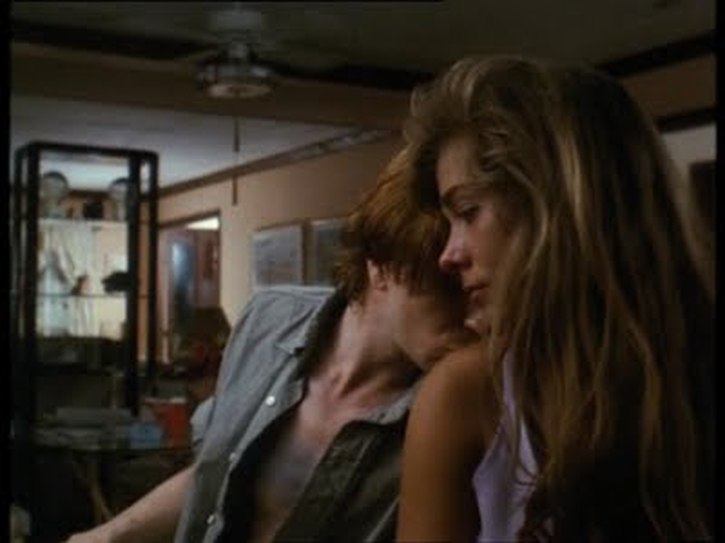
 RSS Feed
RSS Feed
